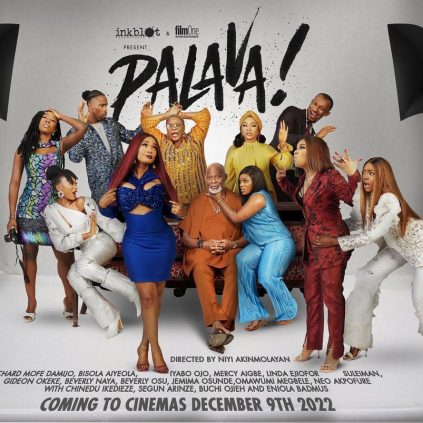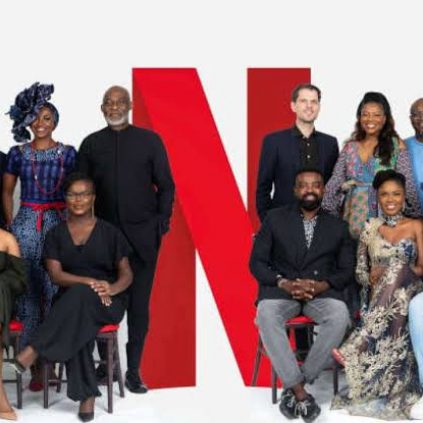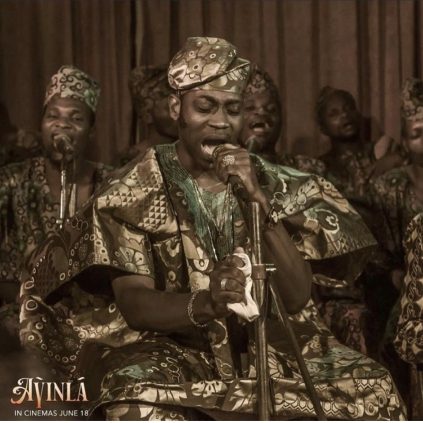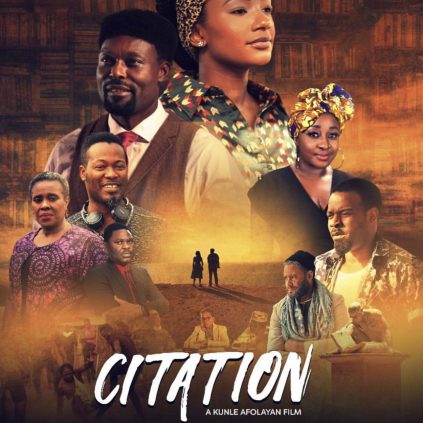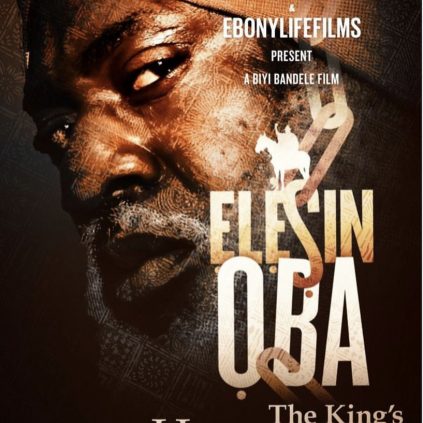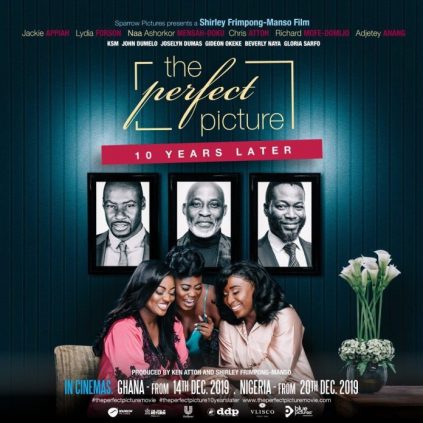Quite frankly, no one is having a better start to the year than Damilola Orimogunje. In the last weeks of January, even Damilola could not have predicted the praise and acclamation that greeted the film “For Maria: Ebun Patiki” when it debuted on Netflix in January. The film has since found its place in the hearts of many Nigerians, sparking insightful conversations about postpartum depression(the subject of the film). In retrospect, given the praise and accolades the film has garnered, the director, Damilola Orimogunje, discusses with TXT everything from the making of “For Maria: Ebun Pataki” to what’s next for him in the industry on our first edition of “Inside Nollywood”.
“I just thought that a few people would watch it and recommend it to their friends, and we would keep it moving.”, Damilola says while reminiscing on the success of the film. The socially poignant film has gone to several film festivals around the world, won awards and topped the charts on Netflix in Nigeria. “I think it’s interesting because, as a filmmaker, you want people to feel the impact of your film. With the kind of issue surrounding the film, it is such a delight that conversations that have been termed a taboo are happening,” he adds.

While “For Maria” is his first feature film, he has already released two short films, MO and Losing My Religion, and Heaven Baby, in 2017, 2018, and 2020, respectively, and has even won awards at film festivals. “For Maria” also screened at numerous film festivals around the world, won the Audience Award for Best Narrative Feature in Film Africa, and was nominated for six African Movie Academy Awards.
The director is not one to shy away from tough subjects, as most of his films have followed darker themes in comparison with contemporary Nollywood films. “For Maria Ebun Pataki” is no exception—it follows the struggle of a first-time mother with postpartum depression. “Postpartum depression is like a alien topic for many Nigerians. It had been on my mind to make such a film. I had previously discussed it with friends and also stumbled on a discussion about postpartum anxiety on Twitter, and it just felt like the right time to make it. “
His love for film and entertainment started at a very early age. Like most Nigerian kids, TV was his first love— “my father’s love for wrestling influenced me a lot. I loved watching Undertaker, Cain, and other wrestlers of that era. I particularly loved watching films by Wong Kar–Wai. “
When the director first began his career, he was drawn towards majorly artistic and independent films, which shaped the filmmaker he has become. Orimogunje studied mass communication at the university after not getting into law due to Nigeria’s tricky admissions process. He knew he had always wanted to write, but it never occurred to the director that he’d end up a filmmaker — “My first script was for a radio show, which was an assignment at university. The work wowed my lecturer, and he encouraged me to pursue it. “That was where the journey started from,” he says.
To reiterate, “For Maria” isn’t your typical film. Critics have adorned it with praise abroad and at home; since the premiere of the film, Otanwa’s performance has been on everyone’s lips. A TXT critic rightly described the film as “daunting and poignant. “For Maria” signals Damilola Orimogunje as one formidable director/writer to watch. Meg Otanwa and Gabriel Afolayan’s committed performances elevated the nifty story.”
” I’ve been friends with Meg for a while now and we share similar convictions when it comes to filmmaking. She just felt like the right person to use. We also knew Gabriel was going to be a fine fit for the role” he explains how the casting came to be.

Nothing about filmmaking is easy. Making a film with such a touchy subject may even be more difficult. Meg Otanwa perfectly conjures the character she plays, from her heart–wrenching monologues to her silent yet loud portrayal. “Meg is such a committed actor; she transforms into a character easily. Shooting the scene where she talks about her battles with depression was so powerful that we had to focus on her shot. When we were done, I remembered the room being dead silent. “
Anyone who watches the film will often notice the piercing noise and cries of the baby in the film. Surprisingly, as the director had intended, the baby tears were real.
“The tears were real, and it helped that there were two babies on set. For preparing the scenes, Gabriel Afolayan and Tina Mba had already bonded with the babies, and Meg didn’t, intentionally. That way, it was easier to shoot it easily. “
At the moment, Orimogunje has so much on his plate. He is in between preparing for the production of his next film “Dear Ajayi” and shooting commercials. Not only does he go where the art moves him, but he is also willing to try any genre and theme as long as it suits him. “As an artist, I’m a chameleon. I’m willing to try out new things rather than box myself in on a particular genre. “
The director’s routine while on set goes from a simple cup of coffee to a reboot with jazz music mid-shoot. His routine before the shoot takes a different route as the director buries himself in a lot of research to get his film right. “I like jazz music; it calms me. I’m also quite passionate about sports, especially football. Chelsea is my favourite club (even if they are breaking my heart at the moment).”
It’s the year 2022. Nollywood, as you know, has grown through different eras of change—technological advancement, global outreach, and spectacular growth in revenue and quality of production—but one thing that seems to be amiss is the story.
The storytelling trend has gone through many changes since the inception of Nollywood; from the ritual–killings stories of the 90s, the campus–queen trend of the 2000s, to the comedy boom of the 2010s— this trend following leaves a dearth of meaningful or “other” stories being told. Orimogunje believes what Nollywood could do differently in terms of storytelling is diversity: “There should be diversity in storytelling. We can’t all tell the same kinds of stories, regardless of whatever trend is in the mainstream. There should be room for other stories to come in and flourish. I want to see these films from local filmmakers and not just Nigerian filmmakers in the diaspora.” He also adds that originality is the key ingredient in making a perfect film. Regardless of what story or genre you’re trying to tell, being original will always make you create beautiful films.
“Financing is the biggest issue every filmmaker faces, especially in Nollywood,” he says. “We don’t have enough funds to make the kinds of films we want to make and the audience wants.” I hope more people will invest in Nollywood because we are capable of greater things. “
We asked the director to give us a list of his top three things of all time—director, foreign films, and Nollywood films—and this was his reply:
Directors: Wong Kar Wai, Ingmar Bergman, Terrence Mallick
Foreign Films: Terrence Malick’s The Tree of Life, Wong Kar Wai’s In the Mood for Love, and Pawel Pawlikowski’s Ida.
Nollywood films: Saworoide by Tunde Kelani, Eyimofe by Arie Esiri and Chuko Esiri, and Mother of Judge by Andrew Dosumu.
He also adds that his lead cast in “For Maria” are his favourite actors at the moment, and his dream cast are Nse Ikpe Etim and OC Ukeje. His advice for emerging filmmakers is that they stick to their guts, read a lot, and stay original. An advice which he himself follows.
Damilola Orimogunje may just be the future of art-house and socially conscious films in Nollywood. His continued push for socially poignant and conscious films is what we admire the most. Will we be on the lookout for his next feature? Definitely!

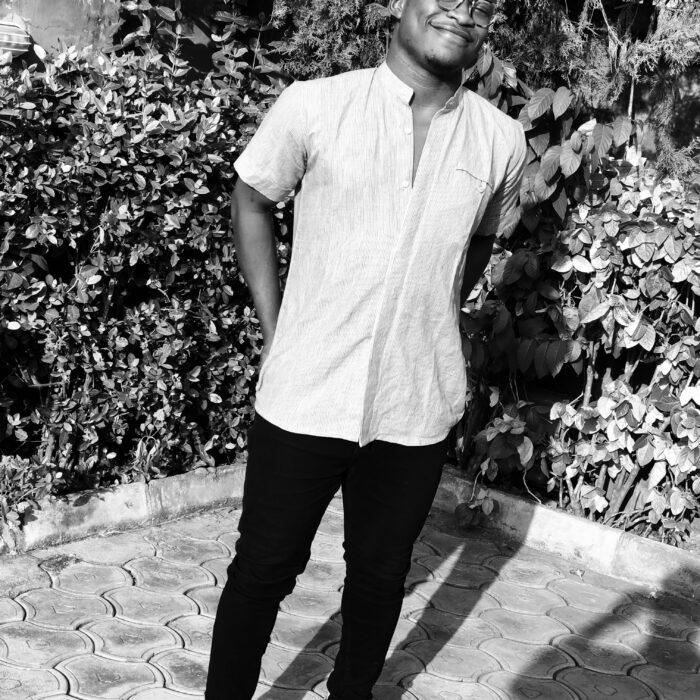
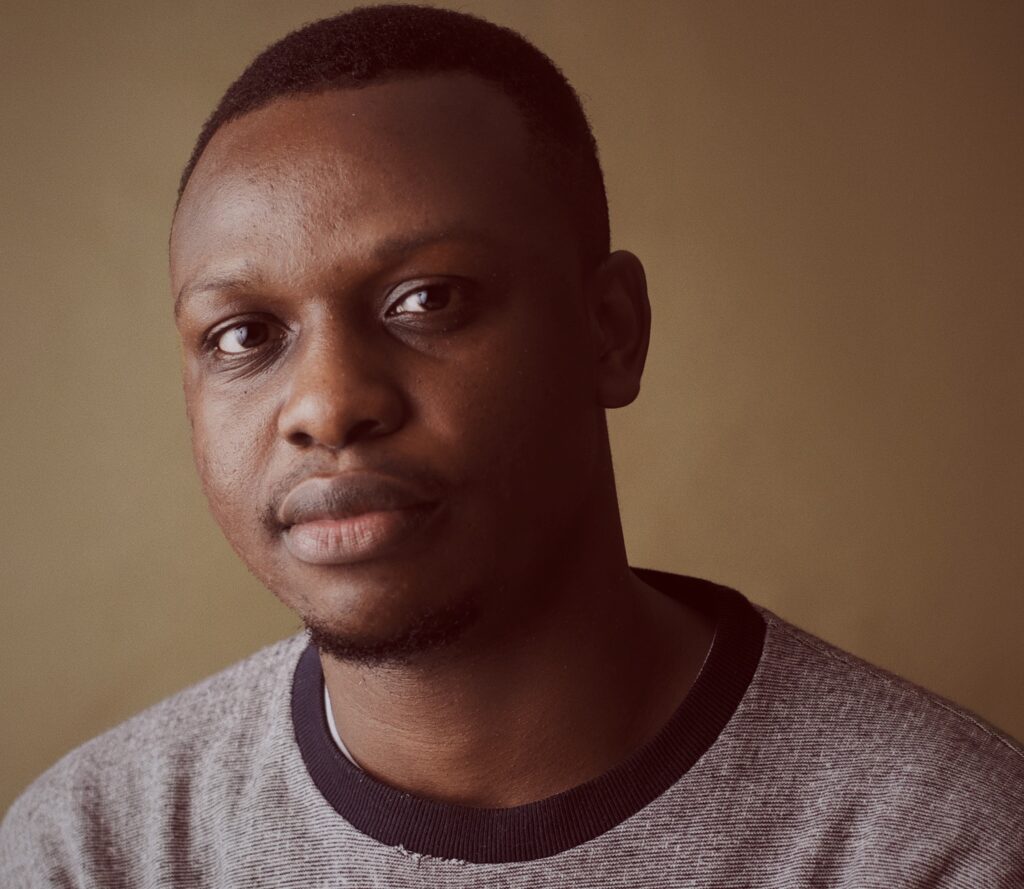
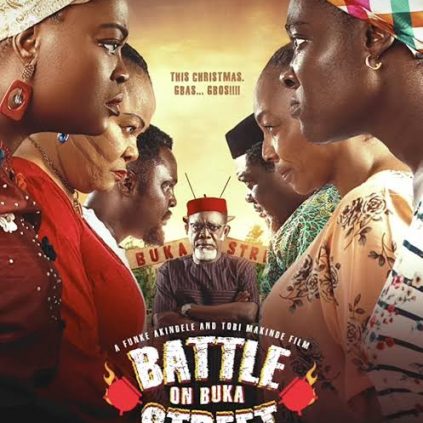
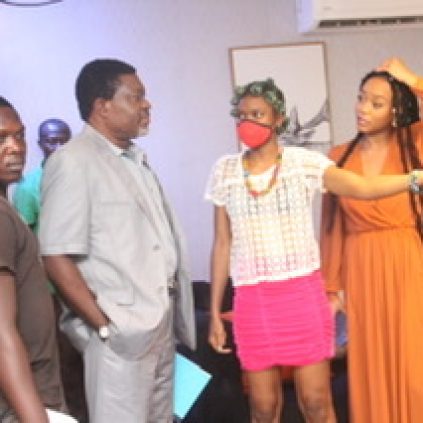
![image0[560] image0[560]](https://txtmag.com/wp-content/uploads/elementor/thumbs/image0560-p8ub9w264843dyxai1d1tju1f9382k821dt5yvyona.jpeg)
